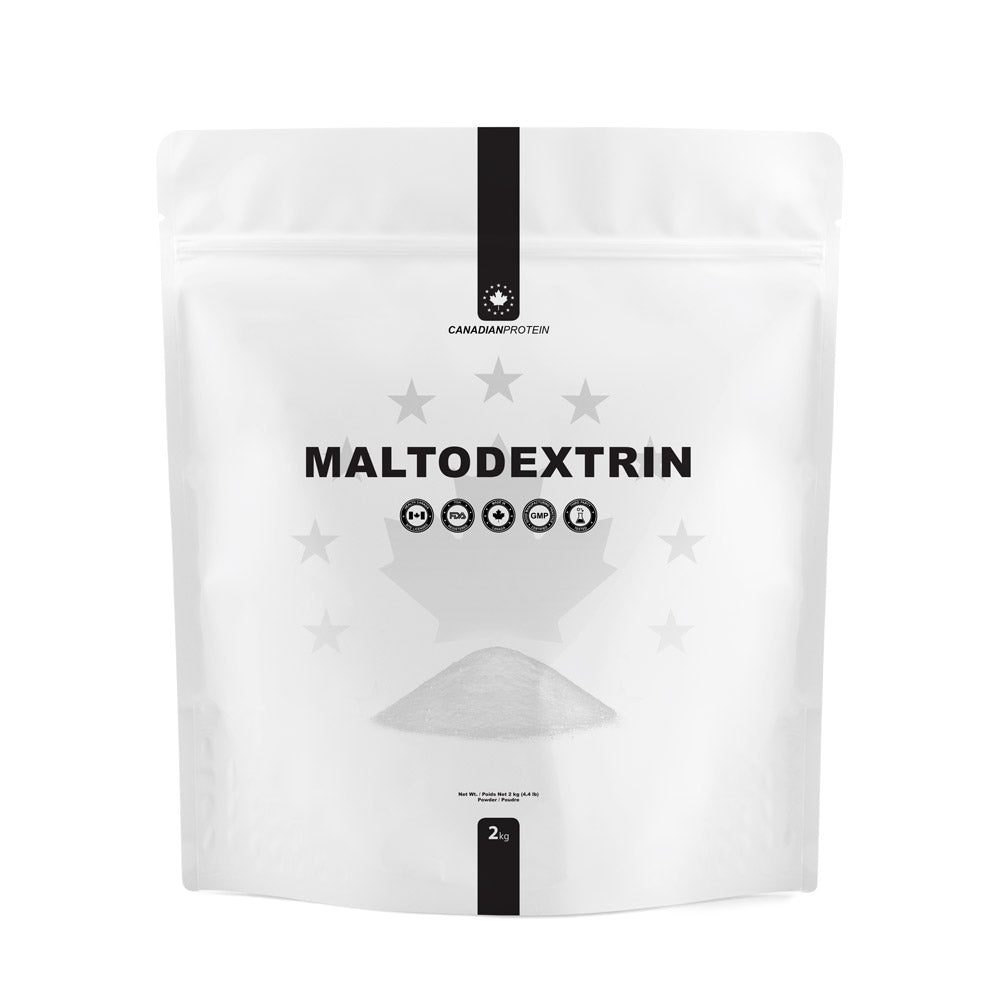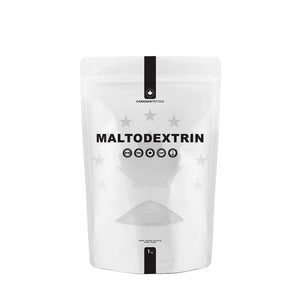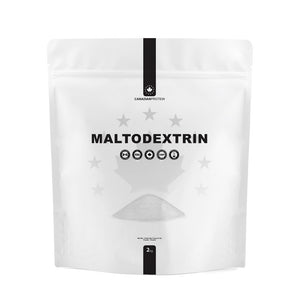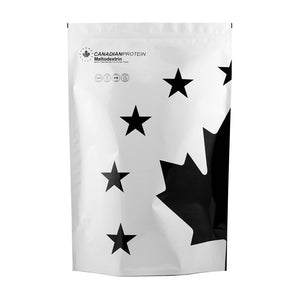30% Off All Supplements | Use Code: SUPP30
Some exclusions may apply.
Maltodextrin
Limited Edition Flavours
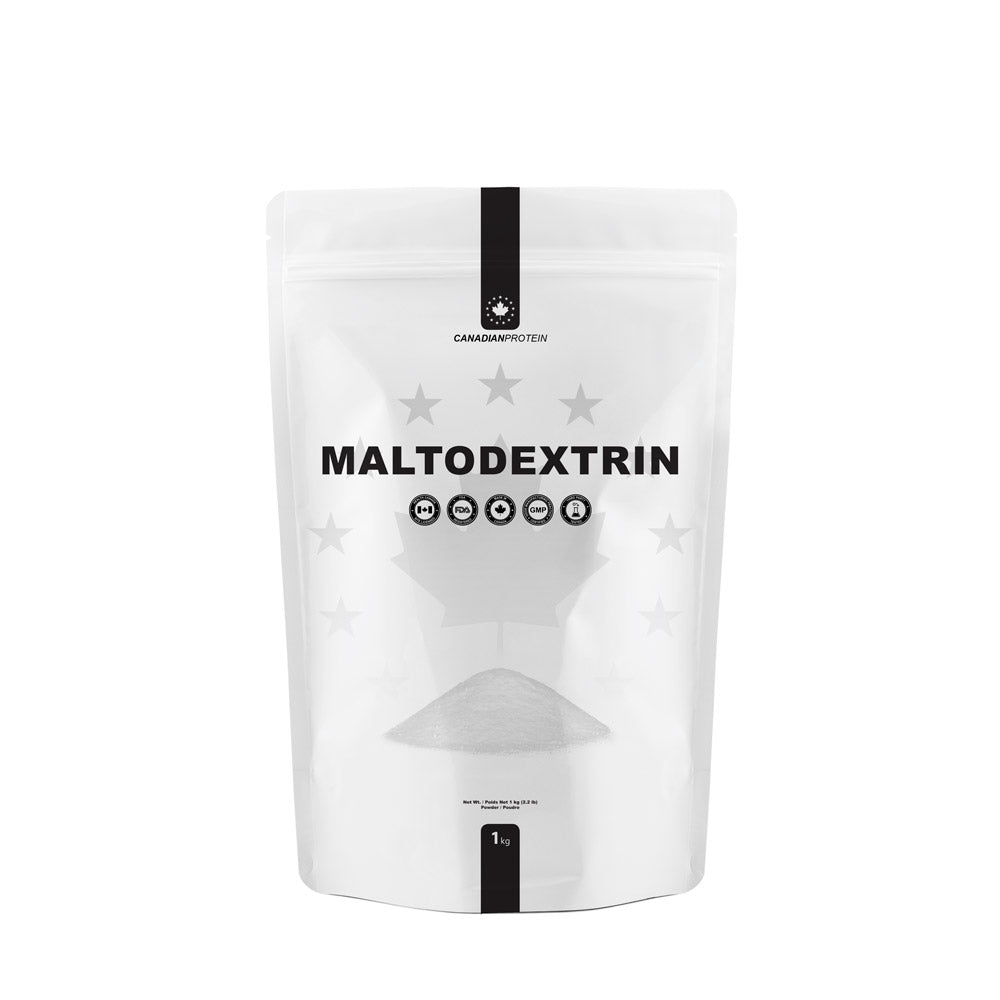
Maltodextrin
Description
Contents
- 1 What is Maltodextrin?
- 2 How does it work?
- 3 What are the benefits of Maltodextrin supplements?
- 4 More energy
- 5 Enhanced nutrient absorption
- 6 Improved intestinal health
- 7 How and when should it be consumed?
- 8 Maltodextrin VS Dextrose
- 9 What can it be stacked with?
- 10 Potential side effects
- 11 Reviews
What is Maltodextrin?
Maltodextrin is actually a polysaccharide that is derived from natural starch sources. It is obtained via special partial hydrolysis processes and is a glucose polymer. Despite this however, it is actually a complex carbohydrate as opposed to a simple carbohydrate, even though it does have a relatively high glycemic index. This high GI however, is considered very beneficial and it is why maltodextrin is such an effective sports supplement. The high GI means that the supplement is able to release large quantities of energy, in a short amount of time, making it a fantastic supplement for energy-boosting purposes. It is similar in structure to dextrose, although it does not have a sweet taste like dextrose does.
How does it work?
As maltodextrin has a high GI, although technically it is a complex carbohydrate, it is still very easily processed and absorbed by the body, making it very easy for the body to digest. Per gram, maltodextrin provides 4 calories of energy, and, for endurance purposes, this is very important. It provides a relatively slow and sustained release of energy, making it ideal for endurance sports, or for longer than average workouts. The body prefers glucose as its primary energy source, so obviously providing forms of sugar during periods of high activity, is going to increase energy levels a great deal. Increasing carbohydrate consumption means that more energy is present, but not only that, but for post-workout purposes, it is also useful as it creates an insulin spike that is not quite as dramatic as what you would experience with dextrose, but it is still enough to assist with the transportation of nutrients from the bloodstream, into awaiting energy cells.
What are the benefits of Maltodextrin supplements?
Some of the primary benefits associated with maltodextrin supplements include the following:
More energy
The primary benefit associated with maltodextrin supplements is the fact that they have been found to increase natural energy levels. Though complex carbohydrates, they behave like simple carbs and provide a quick and sustained release of energy that is perfect for getting you through levels of prolonged physical activity.
Enhanced nutrient absorption
As mentioned, maltodextrin is still able to provide a spike in insulin levels, which, when it comes to post-workout nutrition, is incredibly important. Post-workout, our muscle cells are starved of energy and protein and are able to absorb more than usual, due to the fact that they have expanded slightly. Getting protein, amino acids, and other nutrients into the cells as soon after a workout as possible, is essential, which is where an insulin spike proves useful. Insulin shuttles nutrients from the bloodstream, into awaiting muscle cells, so consuming maltodextrin along with a post-workout protein shake, is highly beneficial.
Improved intestinal health
Another fantastic benefit of this carbohydrate, is the fact that it helps to improve intestinal health. It passes through the small intestine and stomach undigested, before being fermented in the large intestine via healthy bacteria. This produces short-chain fatty acids that have been found to improve colon cell health, and intestinal cell health.
How and when should it be consumed?
For optimal results, experts recommend consuming this product post-workout, in consumption with other products designed to assist with muscle growth and repair. Experts recommend consuming 35g – 50g of maltodextrin, along with your post-workout protein shake, no later than one hour after you exercise. One scoop provides 30 g of Maltodextrin.
Maltodextrin Supplement Facts

Maltodextrin VS Dextrose
Although similar to one another, dextrose and maltodextrin are still very unique. Dextrose is a simple sugar that is absorbed incredibly rapidly. It has a very sweet taste, due to the fact that it is a simple sugar. It is therefore used by the body much quicker than maltodextrin. Maltodextrin, as it is a complex carbohydrate, provides a more sustained release of energy, although it has still been found to be very beneficial when consumed post-workout, with other supplements. The main differences between the two, are the rates of absorption.
What can it be stacked with?
As this supplement is a popular bodybuilding supplement, other bodybuilding supplements can be stacked with it, and in actual fact, work very well when stacked with it. Generally speaking, you can stack it with: Creatine, BCAAs, L-Glutamine, Whey Protein, and Casein Protein.
Allergen warnings
Allergy Statement: This product is made in a facility that handles milk products, gluten, shellfish, soy, peanuts and other tree nuts.
Disclaimer: The above description does not constitute medical advice and is for informational purposes only and has not been evaluated by Health Canada, CFIA, or FDA. Please consult a properly licensed medical professional before consuming nutritional supplements. This product is not intended to treat, diagnose or cure any disease.
Suggested Use
Experts recommend consuming 30g – 60g of maltodextrin, no later than one hour after you exercise. One scoop provides 30 g of Maltodextrin.
Ingredients
Maltodextrin
Nutrition Facts
Nutrition Facts
Serving Size 30
Servings Per Container
| Amount Per Serving | ||
|---|---|---|
| Calories 113 | ||
| % Daily Value* | ||
| Total Fat 0g | ||
| Saturated Fat 0g | ||
| Unsaturated Fat 0g | ||
| Trans Fat 0g | ||
| Cholesterol 0mg | ||
| Sodium 0mg | ||
| Total Carbohydrate 28.4g | 9.5% | |
| Dietary Fiber 0g | ||
| Sugars 1g | ||
| Protein 0g | ||
* Percent Daily Values are based on a 2,000 calorie diet. Your daily values may be higher or lower depending on your calorie needs:
